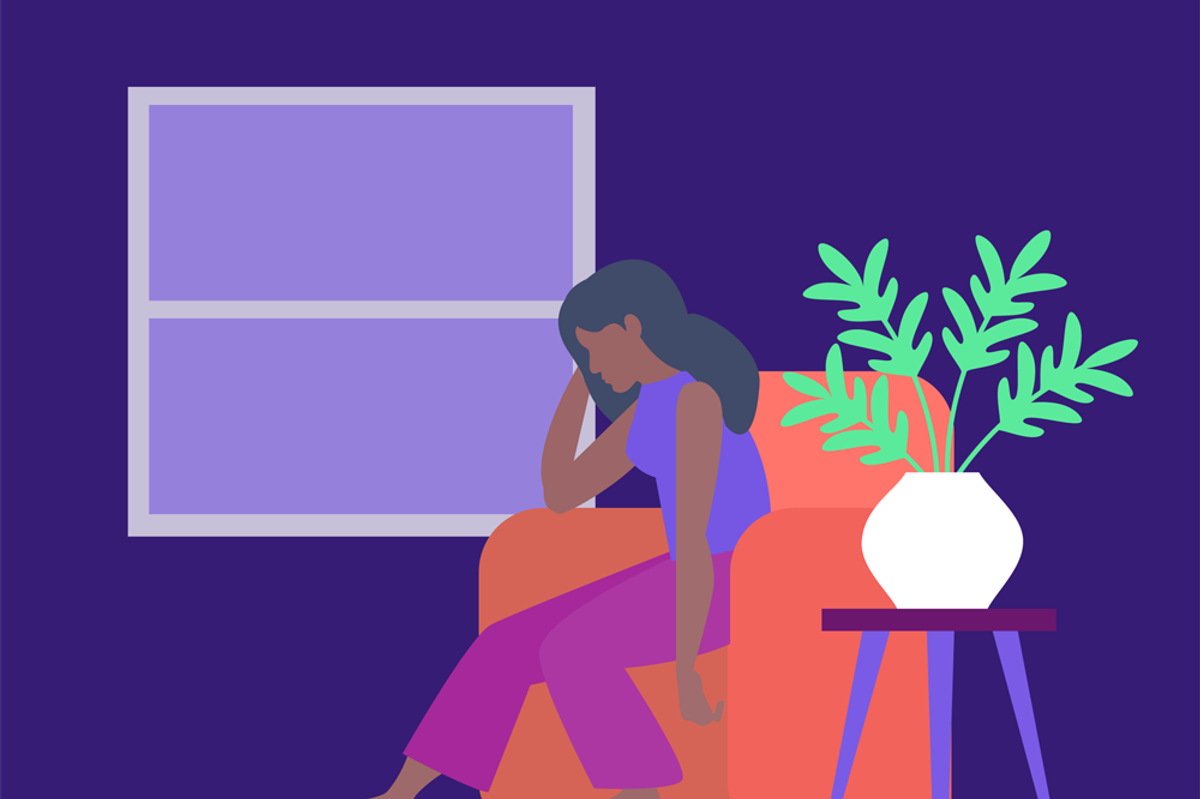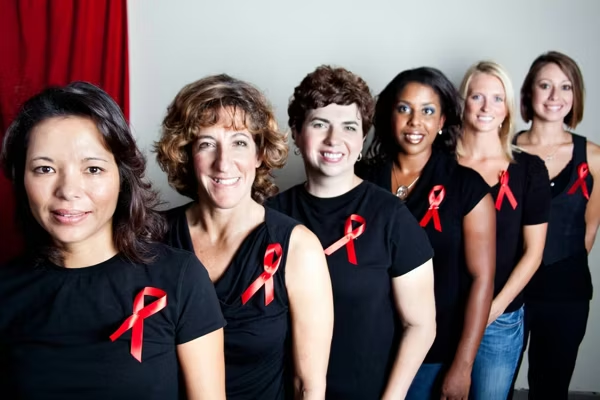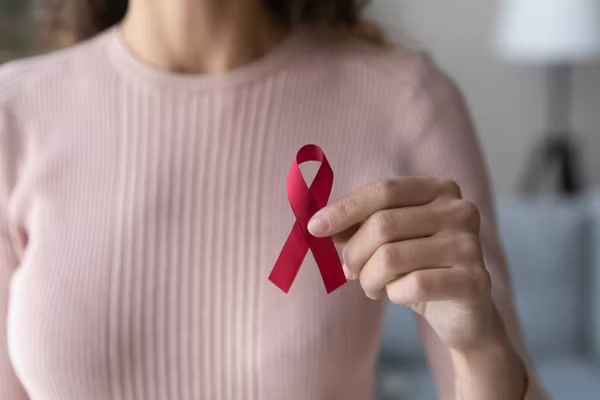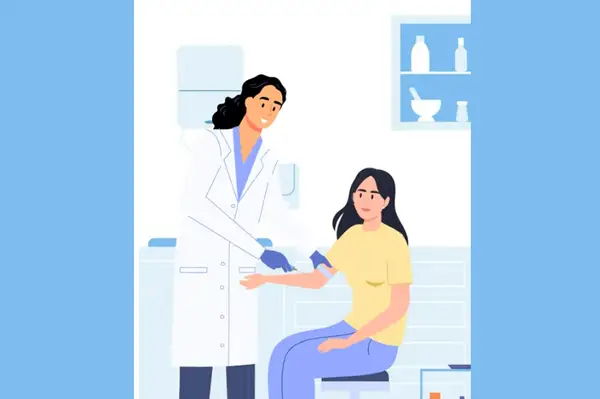Slide 1: Fight Against Stigma — How to Talk About HIV
Stigma hurts, but your words can heal. This quick guide will teach you what to say to help break the stigma.
Slide 2: What is HIV stigma?
What is HIV stigma?
Negative attitudes and beliefs about people with HIV.
How does stigma hurt?
Stigma often leads to discrimination.
Stigma makes people feel isolated and ashamed, and can keep them from getting the help they need.
Slide 3: Women and HIV
- 1 in 4 people living with HIV in the U.S. are women.
- Of women living with HIV in the U.S., women of color have the highest rates of HIV-related deaths.
- Women of all ages, races and ethnicities can get HIV.
Reducing stigma can encourage women to reach out to get the care they need.
Slide 4: What to say: HIV basics
HIV means human immunodeficiency virus. If left untreated, HIV can lead to AIDS (acquired immunodeficiency syndrome).
Don’t say: AIDS when referring to the human immunodeficiency (HIV) virus
Instead, say: HIV
💬 Did you know HIV can be controlled with the right medical care?
Slide 5: What to say: Real people
A person is much more than a medical diagnosis.
Don’t say: Patients, victims, sufferers, contaminated, sick, positives, HIVers, carriers
Instead, say: People/person with HIV, people/person with AIDS, people/person living with HIV and/or AIDS
💬 There are lots of ways that people living with HIV can protect their partners.
Slide 6: What to say: Friends, not enemies
Stigmatizing language turns people against each other. Use your words to break down barriers.
Don’t say: To battle HIV and/or AIDS, war against HIV/AIDS, catch or pass on HIV
Instead, say: Response to HIV and AIDS, be diagnosed with, acquire or transmit HIV
💬 Awareness is a big part of the response to HIV and AIDS.
Slide 7: What to say: Precise is nice
Precise terms are better for sharing accurate information.
Don’t say: Unprotected sex
Instead, say: Sex without a condom
💬 Having sex without a condom can put you at risk for getting HIV.
Slide 8: What to say: Be real about risk
Being general about risk can lead to blame where it doesn’t belong.
Don’t say: Risk, risky behavior, high-risk groups, drug users
Instead, say: Populations with a high [rate], people with [specific] risk factors, people who inject drugs
💬 People who inject drugs are at high risk of getting HIV.
Slide 9: What to say: Undetectable = Untransmittable
If you’re being treated for HIV and your viral loads are undetectable, you can not transmit the virus through sex.
Don’t say: If you’re not infected with HIV, you can’t transmit the virus
Instead, say: People who have an undetectable viral load do not transmit the infection through sex
💬 People with undetectable viral loads can not transmit the virus through sex.
Slide 10: Speak against stigma
The words we say matter.
Learn HIV basics so you know the facts.
Choose language that breaks stigma.
And speak up about what you know.
This resource was created with support from Gilead.
- When Grandma Has HIV ›
- Ask the Expert: HIV and Aging ›
- From Shame to Advocacy: My Decades-Long Journey Living — and Thriving — With HIV ›
- Keeping My HIV Diagnosis a Secret for a Year Taught Me a Lot About People’s Stereotypes ›
- Your Guide to HIV & Aging ›
- I Was the First Living Kidney Donor with HIV - HealthyWomen ›
- I Was Diagnosed with HIV When I Was 15. It’s Been a Journey of Learning to Love Myself Enough to Take My Meds. - HealthyWomen ›
- I Don’t Regret Getting HIV Because It Saved My Life - HealthyWomen ›
- FAQs About HIV and Pregnancy - HealthyWomen ›
- Preguntas frecuentes sobre el VIH y el embarazo - HealthyWomen ›





